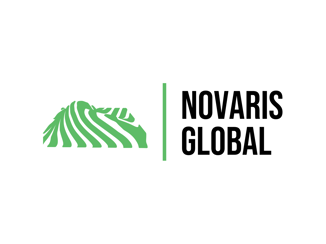Navigating Global Trade in 2025: Key Trends and Strategies
Stay ahead in 2025 with insights into the latest global trade trends. From shifting U.S. trade policies to the rise of AI-driven supply chains, discover key strategies businesses can adopt to navigate an evolving international market.
Michael Carter | Trade & Market Strategy Consultant at Novaris Global
1/1/20252 min read


As we progress through 2025, the global trade landscape is undergoing significant transformations influenced by geopolitical shifts, technological advancements, and evolving economic policies. Businesses engaged in international trade must stay informed and adaptable to navigate these changes effectively. Here are the key trends shaping global trade this year:
1. Geopolitical Realignments and Trade Policies
The return of President Donald Trump has introduced new dynamics in global trade relations. The administration's focus on renegotiating trade agreements and implementing tariffs, particularly targeting China, has led to shifts in supply chains and trade partnerships. Companies are exploring alternative markets and adjusting their strategies to mitigate the impact of these policies.
2. Emphasis on Supply Chain Resilience
Recent disruptions have underscored the importance of building resilient supply chains. Businesses are diversifying their supplier base, investing in technology for better visibility, and adopting strategies like nearshoring to reduce dependency on single sources and enhance flexibility.
3. Expansion of Emerging Markets
Emerging markets, particularly in Asia and Latin America, are experiencing rapid growth. Countries such as India and Vietnam are attracting increased foreign investment due to their expanding consumer bases and favorable economic reforms. Businesses are capitalizing on these opportunities by tailoring products and services to meet local demands.
4. Integration of Advanced Technologies
Technological innovation continues to reshape global trade. Artificial intelligence, blockchain, and data analytics are enhancing operational efficiency, improving supply chain transparency, and facilitating compliance with complex trade regulations. Companies adopting these technologies gain a competitive edge in the global marketplace.
5. Increased Focus on Trade Compliance
With evolving trade policies and regulations, there is a heightened emphasis on compliance. Governments are expanding sanctions and export controls, making it imperative for businesses to implement robust compliance programs. Utilizing tools like denied party screening and staying abreast of regulatory changes are essential steps to mitigate risks.
Strategic Recommendations for Businesses:
Diversify Markets: Explore new and emerging markets to reduce reliance on a single economy and spread risk.
Invest in Technology: Leverage advanced technologies to enhance supply chain management, compliance, and operational efficiency.
Enhance Compliance Measures: Stay informed about regulatory changes and implement comprehensive compliance programs to navigate the complex trade environment.
Build Resilient Supply Chains: Develop strategies that allow for flexibility and adaptability in sourcing and logistics to withstand disruptions.
By understanding and responding to these trends, businesses can position themselves to navigate the complexities of global trade in 2025 successfully.
Novaris Global
Helping Businesses Grow Beyond Borders
our Email
Contact US
info@novarisglobal.com
© 2025. All rights reserved.
